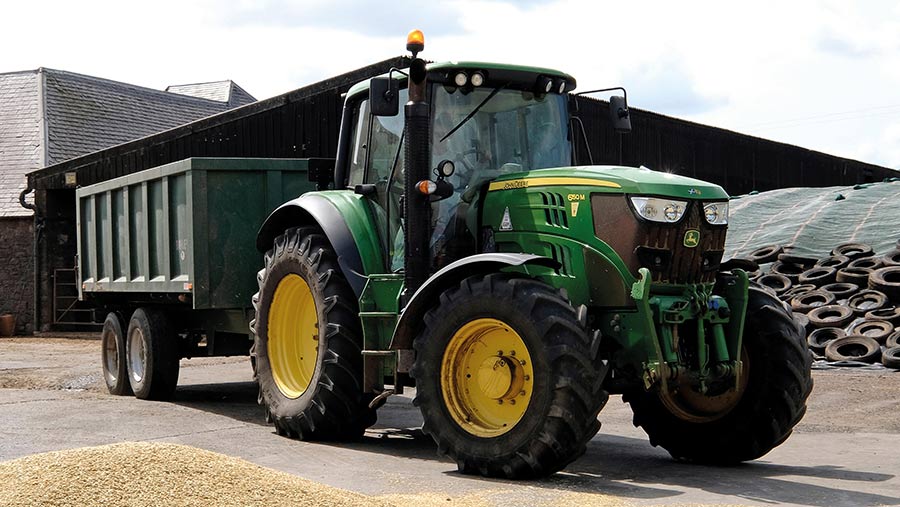Business Clinic: Capital allowance timing issues with hire purchase
 © Rob Gray/Alamy Stock Photo
© Rob Gray/Alamy Stock Photo Whether it’s a legal, tax, insurance, management or land issue, Farmers Weekly’s experts can help.
Andrew Robinson, partner and head of agriculture at Armstrong Watson, advises on hire purchases (HPs) and related timing issues.
Q: I’ve been told that timing of capital allowances is different when buying on hire purchase. Is this correct?
A: That’s right. When buying machinery on hire purchase, care needs to be taken with the timing.
Once the asset is brought into use for the purposes of the trade, the person is treated as having incurred all the capital expenditure in respect of the asset that they will be incurring under the contract from that time on.
See also: Business Clinic: will a limited company help save CGT when passing on property?
Therefore, in order to qualify for capital allowances, the equipment must be on farm and in use by the end of the financial year.
If the machinery is ordered and invoiced but isn’t in the yard and in use at your year-end date, the tax relief will be delayed until the following year.
This makes it doubly important that the purchase of equipment for highly seasonal use, such as combines and specialist crop kit, is well thought through from a timing perspective.
Supply chain pressure
Ongoing pressures in supply chains worldwide mean that for many, it will be necessary to plan and order machinery well in advance in order to secure the right relief in the right period. Delay can have a significant impact on cashflow.
The “in use” requirement can catch you out. Generally, to benefit from a claim for capital allowances it is necessary to be the absolute owner in law.
However, section 67 Capital Allowances Act 2001 provides that where you are purchasing an asset under HP, you will be treated as the absolute owner from the outset where you make use of the asset while paying for it in instalments and where title shall or may be transferred on completion of the agreement.
The key point here is the date the asset is brought into use. Just being in the yard at the year-end is not enough.
Lease purchase and ownership
Lease purchase agreements can present different challenges.
Take, for example, a situation where you have a contract that contains an option for the lessee (you or your business) to buy the asset for market price at the end of the agreement.
This would not be treated as a finance lease by the lessee.
This means that the lessee is not treated as the owner of the asset until they actually buy the asset and so the capital allowances are not available until you have paid the option price at the end of the agreement.
As always, it is really important to seek advice when planning significant expenditure of this nature.
Do you have a question for the panel?
Outline your legal, tax, finance, insurance or farm management question in no more than 350 words and Farmers Weekly will put it to a member of the panel. Please give as much information as possible.
Email your question to FW-Businessclinic@markallengroup.com using the subject line “Business Clinic”.
